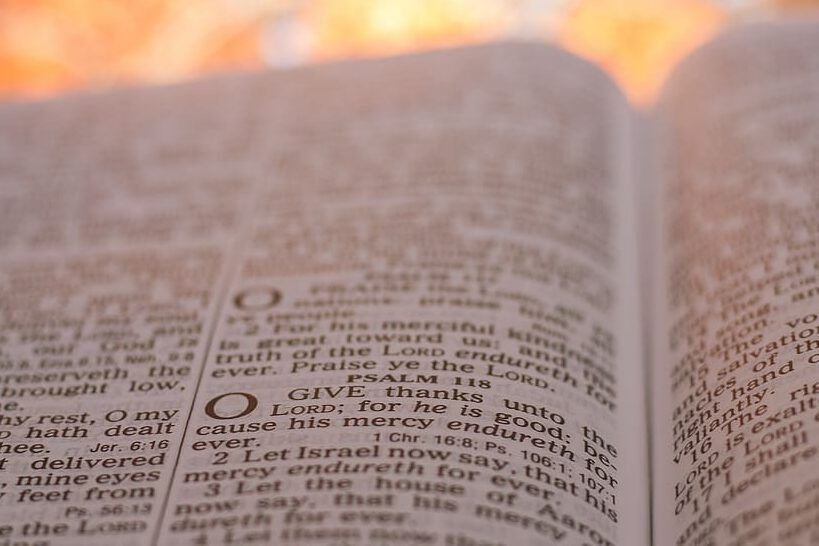What is Psalm 36 of the Catholic Bible? Psalm 36, also known as the "Transgression Speaks to the Wicked," is a psalm of David found in the Book of Psalms in the Catholic Bible. It is a beautiful and powerful expression of trust in God's goodness and justice, even in the face of evil and wickedness in the world.
Bible: The law of attaction
Biblia: La ley de la atracción
The Book of Psalms is one of the most beloved and widely read books of the Catholic Bible. It is a collection of 150 poems and songs that express a range of emotions and experiences, from joy and praise to lament and despair. Psalm 36 is a particularly powerful example of the psalmist's faith and trust in God, even in the midst of difficult circumstances.
Context and Background
The Book of Psalms was likely compiled over a period of several centuries, from the time of David to the post-exilic period. The psalms were originally written in Hebrew and were used in Jewish worship and liturgy. Many of the psalms, including Psalm 36, were later adopted by the Christian church and continue to be used in Catholic liturgy and worship today.
Psalm 36 is attributed to David, the great king of Israel and a man after God's own heart. It is a lament psalm, which means that it expresses sorrow or mourning over a particular situation or circumstance. In this case, the psalmist is lamenting the wickedness and evil that he sees in the world around him.
The psalm is structured in two parts: the first part (verses 1-4) describes the wickedness of the wicked, while the second part (verses 5-12) describes the goodness and faithfulness of God.
Analysis of Psalm 36
Verse-by-verse analysis of Psalm 36 reveals several key themes and motifs. In the first part of the psalm, the psalmist describes the wickedness of the wicked, using vivid and powerful language to convey the depth of their depravity. He describes them as "transgressors" who have no fear of God and who are blinded by their own pride and arrogance.
In the second part of the psalm, the psalmist contrasts the wickedness of the wicked with the goodness and faithfulness of God. He describes God as a "fountain of life" and a "light" who provides for the needs of his people and protects them from harm. He also acknowledges that God's justice and righteousness will ultimately prevail over the wickedness of the wicked.
The language and imagery used in Psalm 36 are particularly striking. The psalmist uses metaphors and similes to describe God's goodness and the wickedness of the wicked. For example, he compares God's love to the "heavens" and his faithfulness to the "skies," while he describes the wicked as having "no fear of God before their eyes" and being like "a dog that returns to its vomit."
The theological implications of Psalm 36 are profound. The psalmist's trust in God's goodness and justice, even in the face of evil and wickedness, is a powerful testimony to the faithfulness of God. It reminds us that God is always present with us, even in the midst of difficult circumstances, and that he will ultimately triumph over evil and bring about justice and righteousness.
Application and Relevance
Psalm 36 has important implications for contemporary Catholic readers. It reminds us of the importance of trusting in God's goodness and justice, even in the face of evil and wickedness in the world. It also encourages us to reflect on our own lives and to examine our own hearts, to ensure that we are not guilty of the same pride and arrogance that the psalmist describes in the wicked.
Psalm 36 is also an important part of Catholic liturgy and worship. It is often used in the Liturgy of the Hours and is a popular choice for Mass readings. Its powerful language and imagery make it a particularly moving and inspiring psalm to pray and meditate on.
Key Points:
- Psalm 36 is a psalm of David found in the Book of Psalms in the Catholic Bible.
- It is a lament psalm that expresses sorrow or mourning over the wickedness and evil in the world.
- The psalmist contrasts the wickedness of the wicked with the goodness and faithfulness of God.
- The language and imagery used in Psalm 36 are particularly striking.
- Psalm 36 has important implications for contemporary Catholic readers and is an important part of Catholic liturgy and worship.
Psalm 36 is a powerful and moving expression of the psalmist's faith and trust in God's goodness and justice. It reminds us of the importance of trusting in God, even in the midst of difficult circumstances, and of the ultimate triumph of God's justice and righteousness over the wickedness of the wicked. As Catholic readers, we can find comfort and inspiration in this beautiful psalm and can use it as a guide for our own spiritual practice and worship.
References:
Bible: The law of attaction
Biblia: La ley de la atracción
Si quieres conocer otros artículos parecidos a Discover the Meaning of Psalm 36 in the Catholic Bible puedes visitar la categoría Entertainment and Miscellaneous.




Leave a Reply